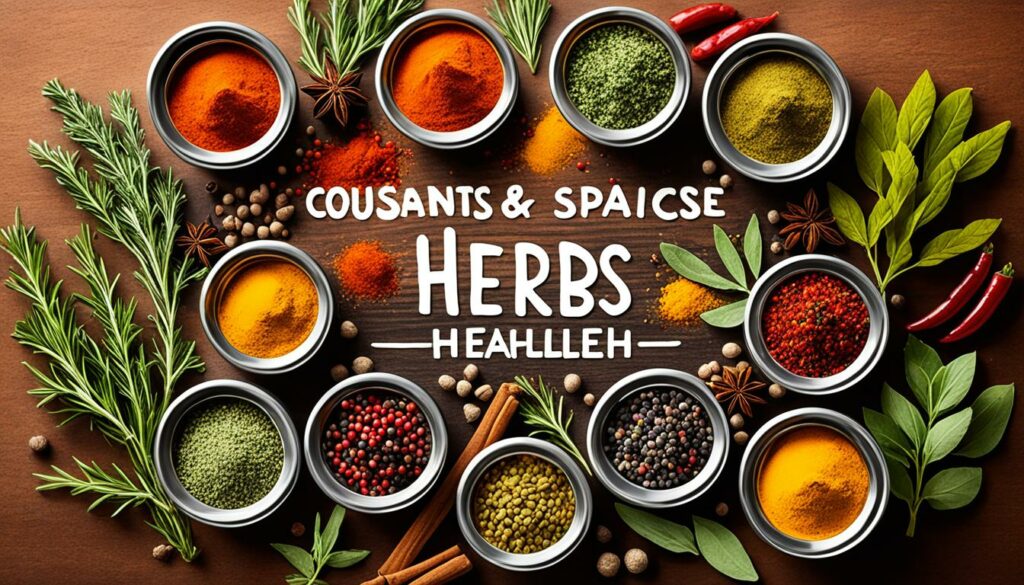Are you looking for natural remedies that can enhance your health and wellness? Discover the power of herbal supplements and unlock the benefits of plant-based solutions. From herbal health to herbal wellness, these organic supplements offer a holistic approach to alternative medicine. But what exactly are herbal supplements and how can they support your well-being?
In this comprehensive guide, we will explore the numerous benefits of herbal supplements and how they can be incorporated into your daily routine. Whether you’re interested in natural remedies, botanical supplements, or plant-based alternatives, this article will provide you with the information you need to make informed decisions about your health. Let’s dive in and discover the incredible potential of herbal products.
The Benefits of Including Botanicals in Your Diet
Botanicals, such as herbs and spices, contain unique phytochemical compounds that are not typically found in the standard American diet. These phytochemicals offer a wide range of health benefits, making botanicals an essential addition to your daily eating patterns. Cultures that have traditionally incorporated herbs and spices into their diets have experienced longer, healthier lives. By including botanicals in your diet, you can promote inflammation balance, harness the power of antioxidant superstars, and reap various health benefits.
One of the key advantages of botanicals is their ability to provide antioxidant properties. Antioxidants are essential compounds that neutralize harmful free radicals in the body, protecting cells from damage that can lead to chronic diseases like cancer and heart disease. Incorporating botanicals rich in antioxidants helps maintain optimal health and supports overall wellness.
Furthermore, botanicals play a crucial role in controlling inflammation balance. Chronic inflammation has been linked to numerous health conditions, including heart disease, diabetes, and autoimmune disorders. Botanicals contain unique phytochemicals that effectively modulate the body’s inflammatory response, reducing the risk of inflammation-related diseases.
It is noteworthy that botanicals offer a wide range of health benefits due to their unique chemical composition. These natural wonders contain various phytochemicals, such as polyphenols, flavonoids, and terpenes, which possess potent antioxidant, antimicrobial, and anti-inflammatory properties. Consuming botanicals regularly can help bridge any nutrient deficiencies in your diet and provide you with a powerful arsenal of health-promoting compounds.
One of the driving factors behind the health benefits of botanicals is their presence in traditional eating patterns. For centuries, cultures around the world have incorporated herbs and spices into their daily meals. These traditional diets have been associated with improved health outcomes and longevity. By following traditional eating patterns and embracing the use of botanicals, you can align your diet with time-honored practices that promote optimal health.
“Incorporating botanicals into your diet can help bridge the gap in nutrient deficiencies and provide unique health benefits.”
Incorporating botanicals into your diet is easier than you might think. You can experiment with different herbs and spices to enhance the flavors of your dishes while gaining their health benefits. Additionally, botanical supplements are available as a convenient option for those who prefer a concentrated and consistent dosage of these unique phytochemical compounds.
Image:

Kitchen Spices vs. Herbal Supplements
When it comes to enhancing flavor and reaping some phytochemical benefits, kitchen spices can certainly add a touch of magic to our culinary creations. However, when it comes to unlocking the full potential of botanical goodness for our health and wellness, herbal supplements reign supreme.
Unlike kitchen spices, which are often dried and used sparingly in recipes, herbal supplements are crafted from potent extracts that harness the power of nature in concentrated form. These extracts contain high levels of phytonutrients, which are bioactive compounds found in plants that offer a range of health benefits.
By taking herbal supplements, you can conveniently incorporate the unique phytonutrients found in various botanicals into your daily routine. This eliminates the guesswork of using kitchen spices, where the concentration of beneficial compounds can vary depending on factors such as freshness and quality.
One of the major advantages of herbal supplements is their adherence to strict quality standards. Reputable manufacturers ensure that their products meet rigorous quality control measures, guaranteeing consistency, potency, and purity. This means you can trust that you are getting the most potent extracts and reaping the maximum benefits from the phytonutrients.
In addition to their convenience and quality standards, herbal supplements offer a wide range of formulations to suit individual needs. Whether you’re looking for immune support, stress relief, or digestive health, there’s an herbal supplement out there curated to address your specific concerns.
So, while kitchen spices add a delightful touch of flavor to our meals, herbal supplements provide a convenient and consistent way to incorporate the potent extracts and phytonutrients of various botanicals into our lives, ensuring we reap their full benefits for our health and wellness.

Choosing the Right Herbal Supplement
Picking the right herbal supplement can feel overwhelming due to the wide range of options available. While multivitamins are more commonly used for nutritional needs, herbal supplements offer specific benefits that can support areas of health. Incorporating herbal supplements into your routine can be a convenient way to enhance your well-being without the need for extensive research. Consulting with an herbalist or holistic practitioner can help guide you in choosing the right herbal supplement based on your individual needs.
The Benefits of Herbal Supplements
Herbal supplements provide a natural and holistic approach to supporting your health. They are derived from plant-based ingredients and offer a wide range of benefits for various aspects of wellness. Unlike multivitamins, herbal supplements are formulated to target specific health concerns and provide targeted support. Whether you’re looking to boost your immune system, improve digestion, or reduce stress, there’s an herbal supplement that can help.
“Herbal supplements offer a unique opportunity to bridge the gap in nutrient deficiencies and provide natural support for our bodies. With their convenient formulation and diverse range of botanical ingredients, they can be a valuable addition to any wellness routine.” – Dr. Emily Thompson, Herbalist
Consulting with Herbalists and Holistic Practitioners
When it comes to choosing the right herbal supplement, seeking guidance from herbalists and holistic practitioners can be beneficial. These experts have extensive knowledge of herb research and can provide personalized recommendations based on your specific needs. They can also help you understand the potential interactions between herbal supplements and any medications you may be taking.
“As herbalists, we take a holistic approach to wellness and consider the individual’s overall health and well-being. By understanding your nutritional needs and specific concerns, we can guide you in selecting the most suitable herbal supplement for optimal results.” – Rachel Greenfield, Holistic Practitioner
Taking the time to consult with these professionals can help ensure that you choose the right herbal supplement that aligns with your goals and supports your overall health and well-being.
What to Look for in Herbal Formulas
Effective herbal formulations require a balance of science, tradition, and artistry. Herbalists and holistic practitioners carefully combine multiple ingredients to target various pathways in the body and provide comprehensive benefits.
When choosing herbal formulas, it is crucial to prioritize botanical safety and quality assurance. Look for reputable manufacturers who have rigorous quality testing procedures in place. This ensures that the herbal formulas you choose are free from contaminants and meet the highest quality standards.
Additionally, sustainability is an important factor to consider. It is essential to select herbal formulas that are sourced responsibly, with a focus on preserving the environment and supporting local communities. By choosing sustainably sourced herbal formulas, you can contribute to the long-term availability of these valuable botanicals.
Herbs Misidentification and Adulteration
Unfortunately, the herbal industry faces challenges such as herbs misidentification and herb adulteration. Some manufacturers may substitute ingredients or dilute herbal formulas, compromising their effectiveness. To ensure that you are getting authentic and potent herbal formulations, look for brands that prioritize transparency and provide detailed information about the sourcing and manufacturing processes.
“The integrity and effectiveness of herbal formulas rely on the quality of the ingredients and the expertise of the formulators.”
By choosing herbal formulas from reputable manufacturers, you can have confidence in the authenticity and potency of the products you are using. This not only ensures their effectiveness but also promotes your safety and well-being.
A Holistic Approach to Herbal Formulations
Herbal formulations take a holistic approach to wellness by addressing multiple aspects of health. Instead of targeting a single symptom or condition, these formulas consider the interconnectedness of the body and aim to support overall well-being. The combination of multiple ingredients in herbal formulas allows for a synergistic effect, where the herbs work together to enhance their individual benefits.
Incorporating herbal formulas into your wellness routine can provide a natural and holistic approach to maintaining health and vitality. Whether you are seeking support for digestion, immune function, stress management, or other health concerns, there are herbal formulas available to meet your specific needs.
| Benefits | Botanical Safety | Quality Assurance | Sustainability |
|---|---|---|---|
| Target multiple pathways in the body | Choose reputable brands for botanical safety | Look for rigorous quality testing procedures | Select sustainably sourced herbal formulas |
| Support overall health and well-being | Ensure transparency in sourcing and manufacturing processes | Prioritize authenticity and potency | Promote environmental and community preservation |
| Take a holistic approach to wellness | Address herbs misidentification and adulteration | Promote safety and well-being | Contribute to the long-term availability of botanicals |

Understanding Herbal Supplements
Herbal supplements, also known as herbal products or phytomedicines, are made from botanicals or plants. These products can be used internally and come in various forms, including pills, powders, capsules, or liquids.
While herbal supplements are not subject to the same standards and regulations as prescription drugs, the FDA does regulate the safe use of these products. It is important to consult with a healthcare provider before taking herbal supplements, as they can interact with other medications and may not be suitable for everyone.
Herbal products have been used for centuries to promote health and well-being. They offer a natural alternative to pharmaceutical drugs and can provide relief from various ailments.
Here are some common forms of herbal supplements:
- Pills – These are the most common form of herbal supplements. They are convenient to take and often contain standardized extracts of botanicals.
- Powders – Herbal powders can be mixed into drinks or smoothies, allowing for customizable dosing.
- Capsules – Capsules offer a convenient way to consume herbal supplements, providing precise dosing in an easy-to-swallow form.
- Liquids – Herbal supplements in liquid form can be added to water or other beverages for easy consumption.
It’s important to note that not all herbal supplements are created equal. Quality and potency can vary between brands and products. To ensure you are purchasing a high-quality herbal supplement, look for reputable manufacturers that adhere to strict quality control standards and perform rigorous testing on their products.
Table: Key Things to Consider When Choosing Herbal Supplements
| Factors to Consider | Importance |
|---|---|
| Ingredient quality | High |
| Manufacturing standards | High |
| Product potency | High |
| Reputation of the brand | High |
| Third-party testing | High |
| Indications and recommended uses | Moderate |
| Formulation and dosing | Moderate |
| Possible side effects and interactions | Moderate |
| Cost | Low |
By considering these factors, you can make an informed decision when choosing herbal supplements that align with your health goals and needs.

Common Herbal Supplements and Their Uses
Herbal supplements have gained popularity for their natural benefits and therapeutic properties. There are several common herbal supplements that have been extensively researched and proven effective for specific purposes. These supplements offer a holistic approach to wellness and can be incorporated into your daily routine to support your overall health.
Black cohosh is commonly used for menopausal symptoms such as hot flashes and mood swings. Echinacea is known for its immune-supporting properties, helping to strengthen the body’s defenses against common illnesses. Evening primrose is often used to alleviate symptoms of arthritis and premenstrual syndrome (PMS).
Feverfew is a popular choice for those seeking relief from migraines. Garlic, a well-known culinary ingredient, has also been shown to promote cardiovascular health and help maintain healthy cholesterol levels. Gingko biloba is commonly used to support memory and circulation.
Ginseng is renowned for its energy-boosting and stress-relieving properties. Goldenseal is valued for its antimicrobial properties and is often used to support the immune system. Green tea, rich in antioxidants, has been associated with weight loss benefits and overall well-being.
Hawthorn is recognized for its positive effects on heart-related conditions. Saw palmetto is commonly used to promote prostate health in men. St. John’s wort, a well-known herbal supplement, is often used to alleviate mild to moderate depression.
It is important to note that while these herbal supplements offer various benefits, it is always advisable to consult with a healthcare provider before incorporating them into your routine. They can provide personalized guidance and ensure safe and appropriate use based on your individual needs.

